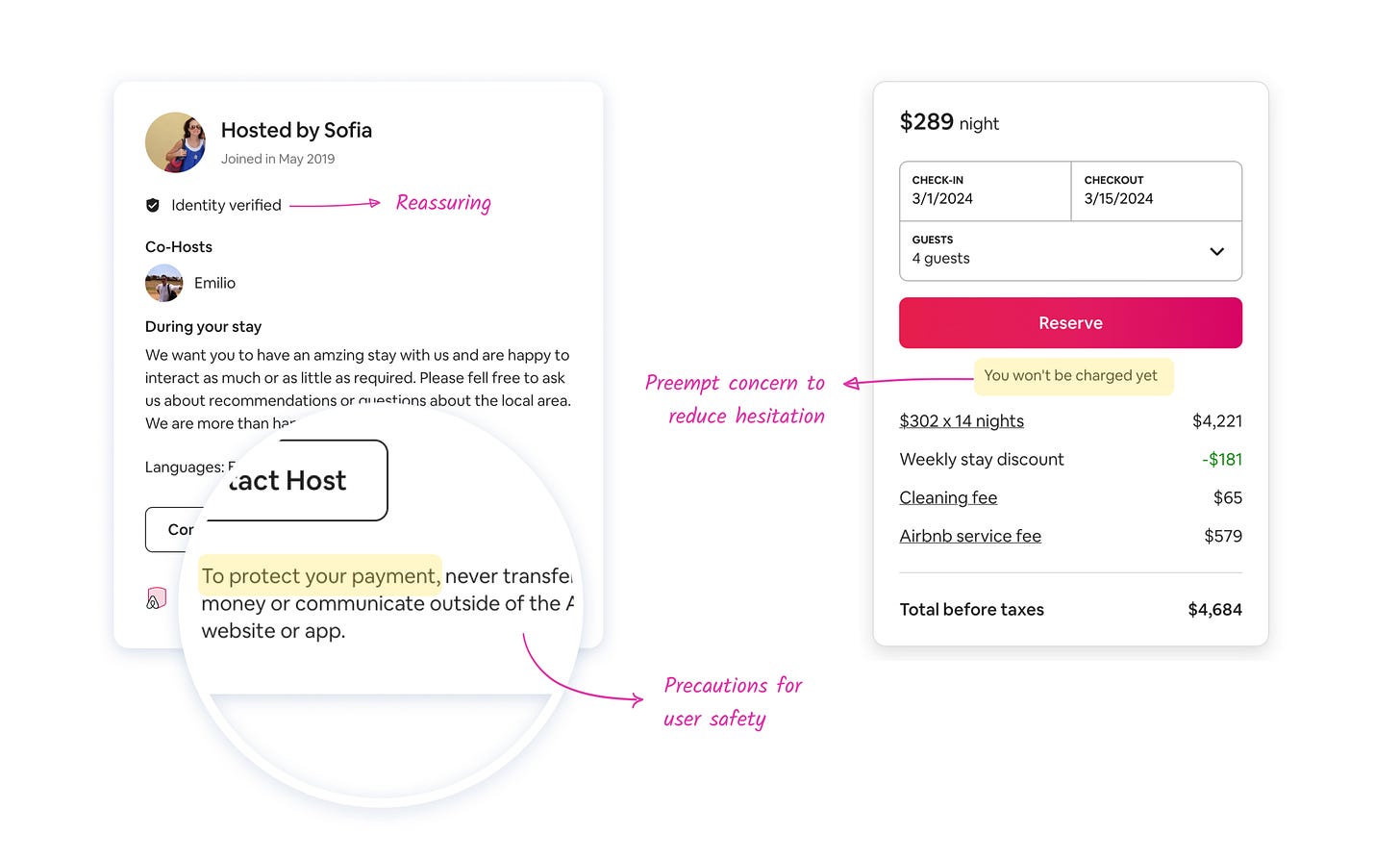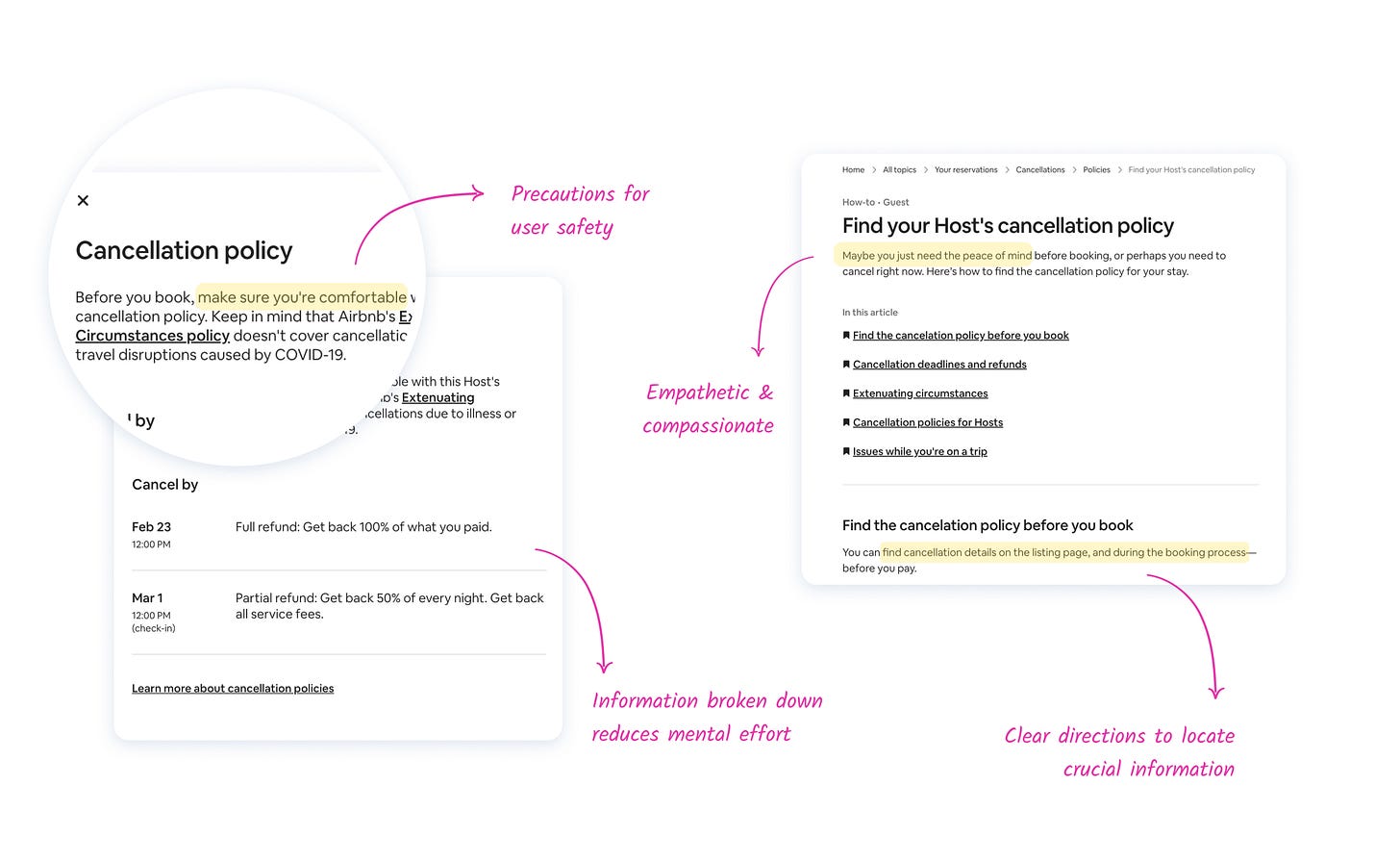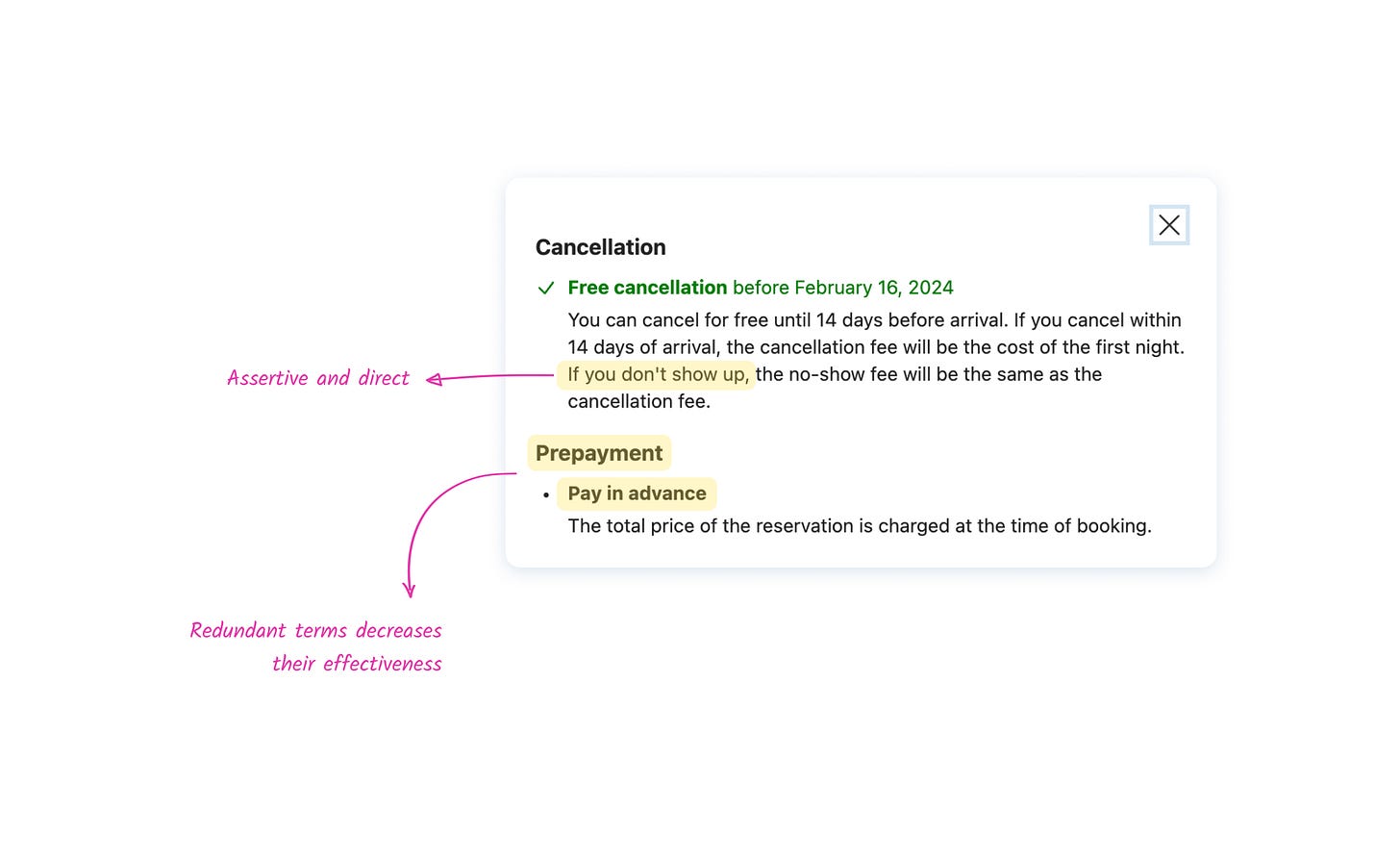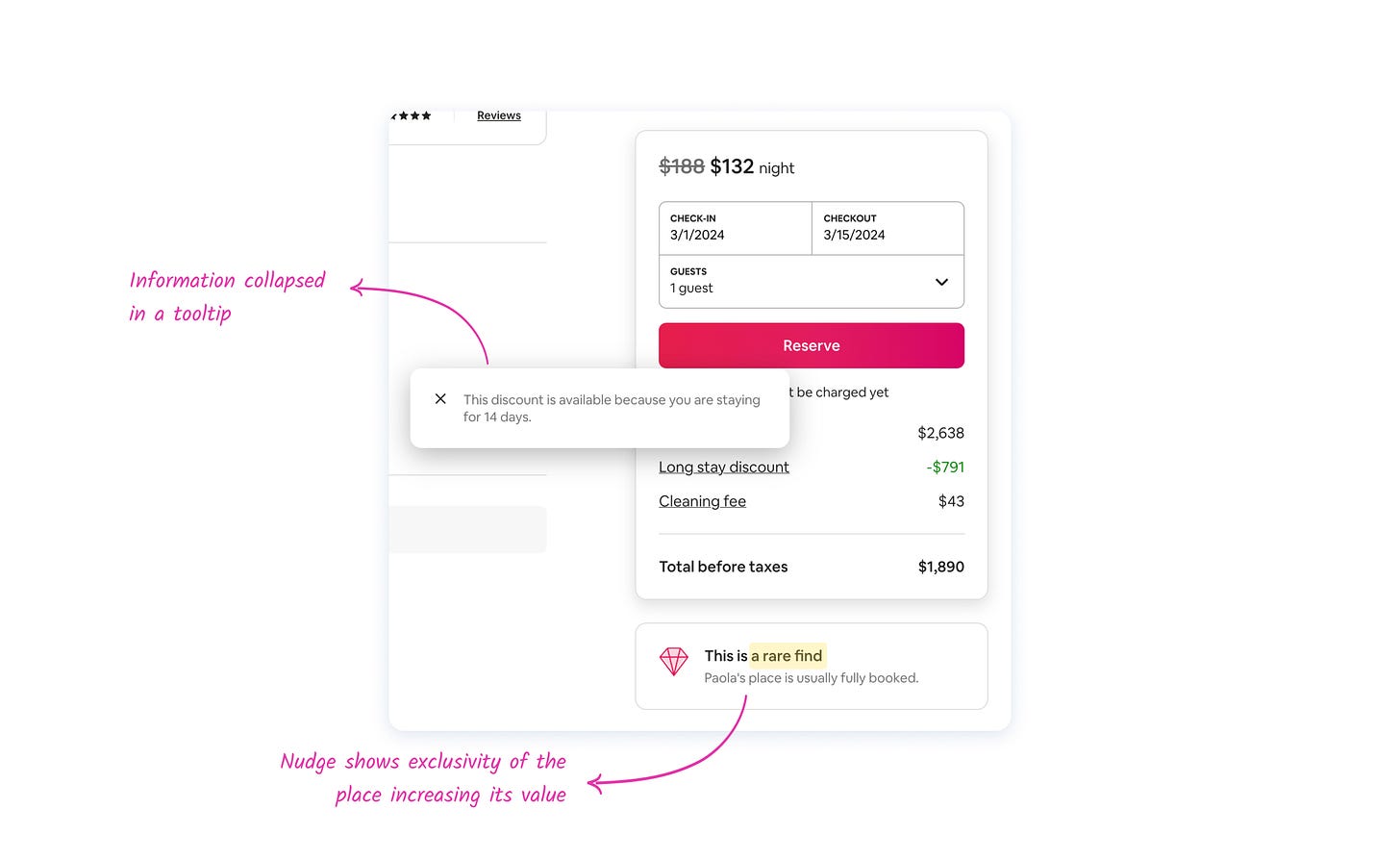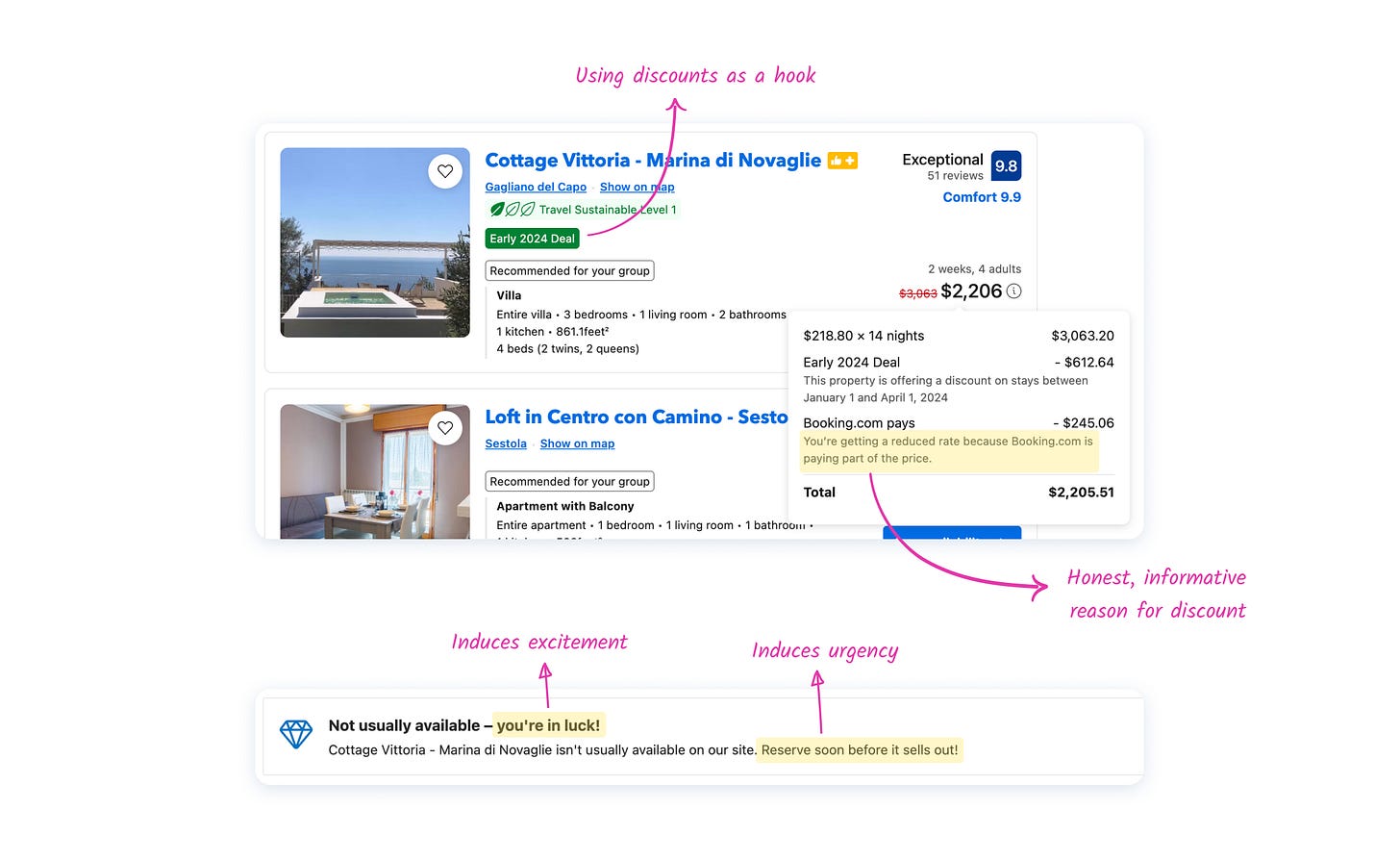How words turn clicks into bookings
Exploring copy that drives action and trust in Airbnb and Booking.com
In travel, where every booking counts, clear and helpful language makes all the difference. Good UX copy doesn’t just show what a brand stands for, it helps me feel confident using the app and makes booking easier. Here, I explore the nuances of how Airbnb and Booking.com use words differently across four key areas.
1. Community and reviews
Airbnb cultivates a community-centric voice by using terms like ‘Guest,’ ‘Host’ and ‘Superhost’. These terms categorize user personas, creating a sense of identity and belonging. Tags like ‘Superhost’ and ‘Guest favorite’ succinctly acknowledge exceptional hosts and are prominently featured throughout the interface. Airbnb strengthens connection with users by using the host’s real name on the listing page.
Booking.com, in contrast, maintains a more professional tone, emphasizing efficiency. The platform sparingly mentions the term ‘guest’. It uses a formal term like ‘staff’ in the reviews, mainly because unlike Airbnb, Booking.com features hotels more than individual homes.
2. Trust and security
Airbnb prioritizes user safety with reassuring phrases like ‘Identity verified’. This precautionary note ‘To protect your payment, never transfer money or communicate outside of Airbnb website or app’, builds trust by highlighting the care for customer safety. Further, users often believe that reserving requires entering credit card details making them hesitant to click the button. To preempt concerns about potential charges, Airbnb strategically places a reassuring copy ‘You won’t be charged yet’ right below the reserve button encouraging user action.
Similarly, Booking.com improves its conversion rates by putting a copy ‘Don’t worry — clicking this button won’t charge you anything’ beneath the ‘Reserve’ button. It instills confidence through straightforward communication. Its Price Match feature writes ‘Find something cheaper? We’ll refund the difference’. This promise reassures users of getting the best deal and choosing Booking.com over other platforms. However, it may raise doubts about reliable information with the copy, ‘Guests say the description and photos for this property are very accurate’. This statement relies on 3rd person opinions, implying that Booking.com lacks a direct method for verifying information.
3. Cancellation and refunds
Airbnb takes a user-centric approach, using empathetic language during cancellation processes. Phrases like ‘Maybe you just need peace of mind before booking..’ and ‘make sure you’re comfortable’ convey a sense of understanding, making users feel supported. Clear guidance about finding cancellation policy and constant reminders about things users should do turns a potential frustration into a manageable task.
In contrast, Booking.com prioritizes clarity and transparency. The tone is assertive and straightforward, detailing cancellation terms without unnecessary fluff. This information is presented in an easy to understand language in a short paragraph. Although, it could benefit from eliminating repetitive subheadings like ‘Prepayment’ and ‘Pay in advance’ to help grasp the information much faster.
4. Promotions and discounts
Airbnb strategically includes discounts by disclosing them in the pricing breakdown after a property is chosen. This method places focus on the distinctiveness of homes and hosts while understating the discounts. Phrases like ‘This is a rare find’ uses the scarcity principle which is rooted in the idea that limited availability of an item increases its perceived value. This in turn triggers a sense of urgency and exclusivity.
Booking.com, in contrast, takes an explicit and transparent stance on showcasing deals and discounts. Deals are shown on the property card helping users choose the best possible deals. Tags like ‘Early 2024 deal’ and ‘Recommended for your group’ promote property selection with clear descriptions explaining the reasons behind discounts. Like Airbnb, Booking.com also uses the scarcity principle to induce excitement and urgency with phrases like ‘You’re in luck’ and ‘Reserve soon before it sells out’.




